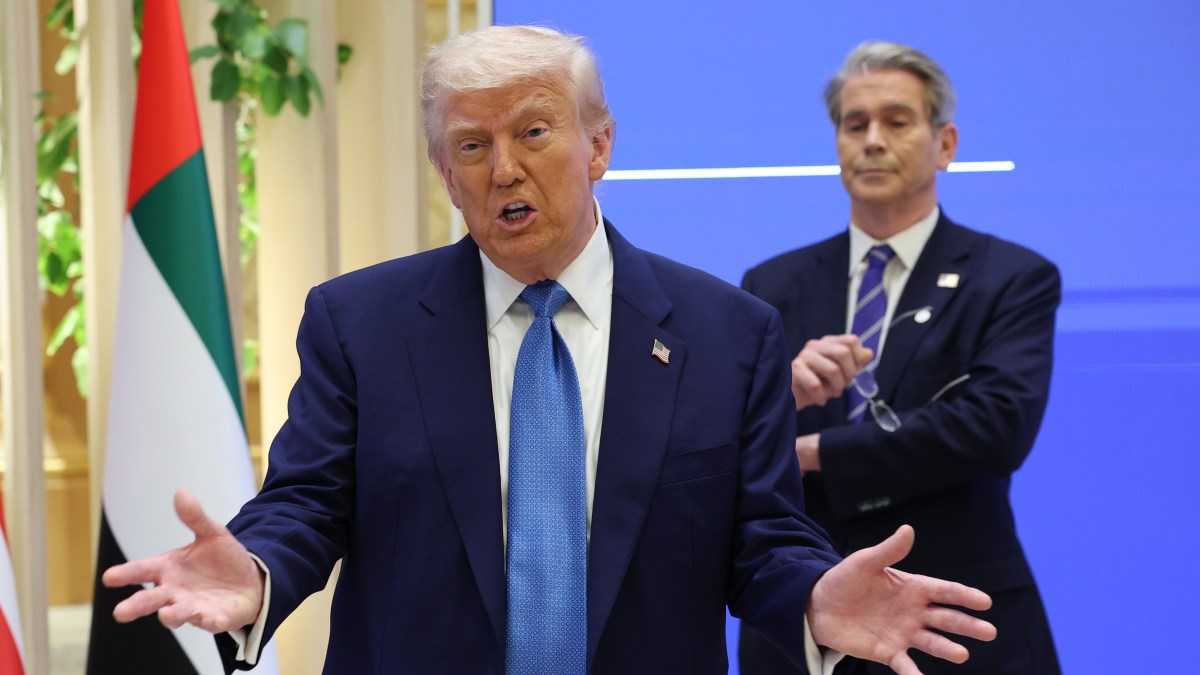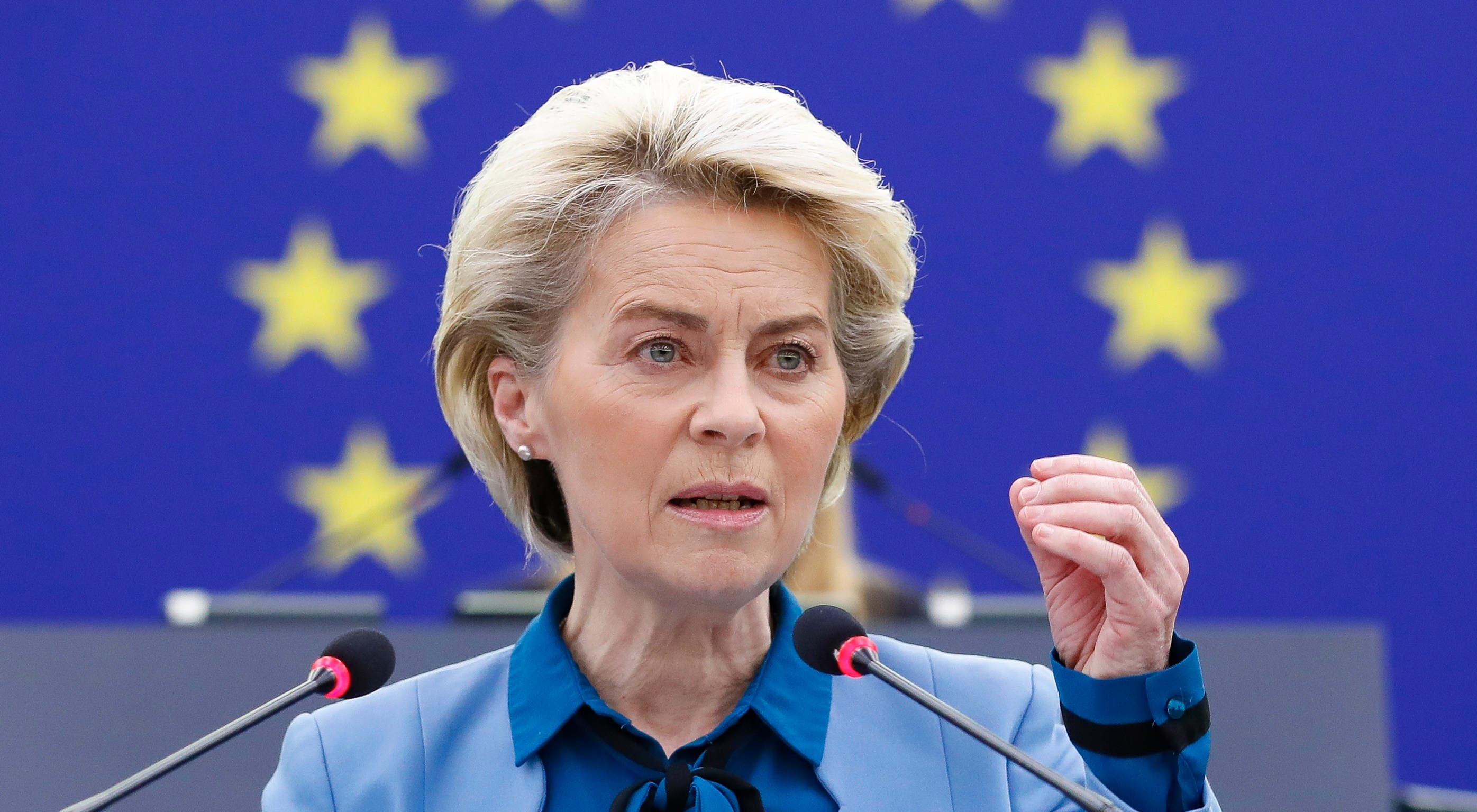President Trump said that he would suspend his 50 per cent tariffs on the European Union until July 9 after Ursula von der Leyen pleaded for more time to “reach a good deal” with the United States.
Trump confirmed on Sunday that he had held a “very nice call” with the EU president and had granted the bloc an extension to his tariff deadline to “get down to serious negotiations” on a trade deal.
The president sparked renewed turmoil on global markets when he announced on Friday that he would impose sweeping tariffs on the EU from June 1, complaining that “our negotiations with them are going nowhere”. The threat revived fears of a global trade war only days after Trump stepped back from a standoff with China.
Ursula von der Leyen said she had had a “good call” with Trump and insisted the EU was “ready to advance talks swiftly and decisively”
JULIEN WARNAND/EPA
Speaking to reporters as he returned to Washington from his golf club in New Jersey on Sunday, however, Trump confirmed that von der Leyen had sought an extension to the deadline.
Von der Leyen “just called me … and she asked for an extension on the June 1st date, and she said she wants to get down to serious negotiation,” Trump said as he boarded Air Force One. “We had a very nice talk and I agreed … July 9 would be the day. That was the date she requested … and I agreed to do that.”
Trump suggested that he and von der Leyen “will rapidly get together to see if we could work something out”.
Von der Leyen confirmed the new deadline in a post on X, saying that she had held a “good call” with Trump, but that “to reach a good deal, we would need the time until July 9.”
She stressed that “the EU and US share the world’s most consequential and close trade relationship”.
“Europe is ready to advance talks swiftly and decisively,” she added.
Trump has hit the EU with three sets of tariffs since unveiling his flagship trade strategy on “liberation day” in early April. The US has imposed a 25 per cent on European steel, aluminium and cars, followed by a 20 per cent “reciprocal” tariff on all imports.
That levy has been suspended as the two sides try to broker a deal, but a baseline 10 per cent US tariff remains in force. Brussels has threatened to retaliate with tariffs on American imports if the trade talks fail to yield a breakthrough.
Trump appeared to walk away from the negotiations on Friday, insisting that the EU was “very difficult to deal with” and claiming that he was “not looking for a deal”. As he has repeatedly since launching his tariff plan, however, the president has left the door open to continue trade talks.
His latest brinkmanship has brought renewed uncertainty to the global economy, however, only days after some stability had returned to markets when the Trump administration reached a trade deal with the UK and stepped back from a tariff war with China.
Lars Klingbeil, the German finance minister, also called for serious negotiations” with Washington on Sunday, saying he had spoken with his US counterpart Scott Bessent about the matter.
“We don’t need any further provocations, but serious negotiations,” Klingbeil, who is also Germany’s vice-chancellor, told Bild. “The US tariffs endanger the US economy just as much as the German and European economy,” Klingbeil warned.

